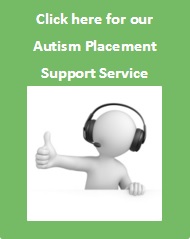If you suspect your child has autism, your GP should refer you to the local autism team to arrange for a diagnosis.
If you are an adult and you experience difficulties in social communication, rigid and repetitive behaviours and you have difficulties in sustaining education/employment/social relationships, your GP should refer you for a comprehensive diagnostic assessment.
Support after diagnosis
At school, a child with a diagnosis should be assessed for a statement of educational needs to help them access extra support if they need it for their learning:
- If the local authority decides not to write a statement after the assessment, they should always explain why
- If you believe your child should have an educational statement and the local authority decided not to write one, you can appeal to the Special Educational Needs and Disability Tribunal
- If you are an adult, once you receive a diagnosis, you should be offered a community care assessment by the local authority
If you have not been offered a community care assessment after a diagnosis, you can ask for one to be carried out.
Transitions
- If your child has a statement of education needs, the local authority has to begin transition planning from Year 9
- If your child does not have a statement of education needs, but does have a diagnosis, they may have a Health Action Plan that looks at their social skills and strategies for self-care
- A child with autism in transition should be offered a community care assessment
- If your child has not been offered a community care assessment, ask your local authority’s autism team
For more information, click here.



